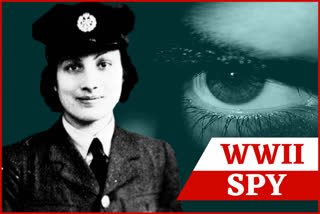London: Britain's World War II spy Noor Inayat Khan on Friday became the first Indian-origin woman to be honoured with a memorial Blue Plaque at her former family home in central London.
The Blue Plaque scheme, run by the English Heritage charity, honours notable people and organisations who were connected with particular buildings across London.
Khan's plaque has gone up at 4 Taviton Street in Bloomsbury, where she lived before she left for Nazi-occupied France in 1943 as an undercover radio operator for Britain's Special Operations Executive (SOE).
Noor, the daughter of Indian Sufi saint Hazrat Inayat Khan and a descendant of the 18th century Mysore ruler Tipu Sultan, went on to be killed at Dachau concentration camp in 1944, having revealed nothing to her captors, not even her real name.
"When Noor Inayat Khan left this house on her last mission, she would never have dreamed that one day she would become a symbol of bravery, said Shrabani Basu, historian and author of Spy Princess: The Life of Noor Inayat Khan'.
She was an unlikely spy. As a Sufi, she believed in non-violence and religious harmony. Yet when her adopted country needed her, she unhesitatingly gave her life in the fight against Fascism, said Basu, who formally unveiled the commemorative plaque in a small ceremony to be broadcast on social media, given the coronavirus social distancing requirements.
Read also:Chapter on Tipu Sultan dropped from class 7 textbook in Karnataka
It is fitting that Noor Inayat Khan is the first woman of Indian-origin to be remembered with a Blue Plaque. As people walk by, Noor's story will continue to inspire future generations. In today's world, her vision of unity and freedom is more important than ever, added Basu, who is also founder-chair of the Noor Inayat Khan Memorial Trust (NIKMT), which installed a sculpture of Noor in nearby Gordon Square in 2012.
